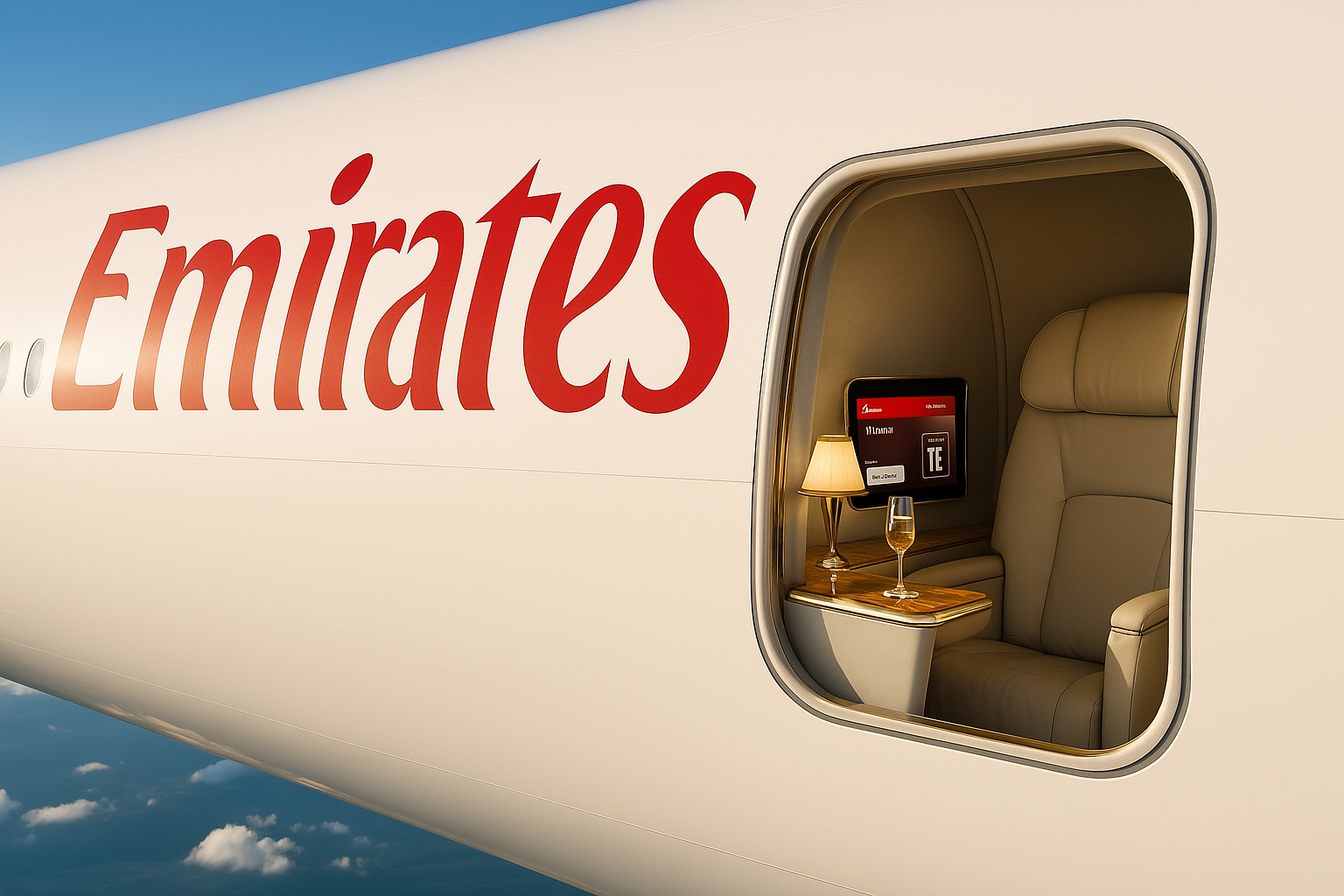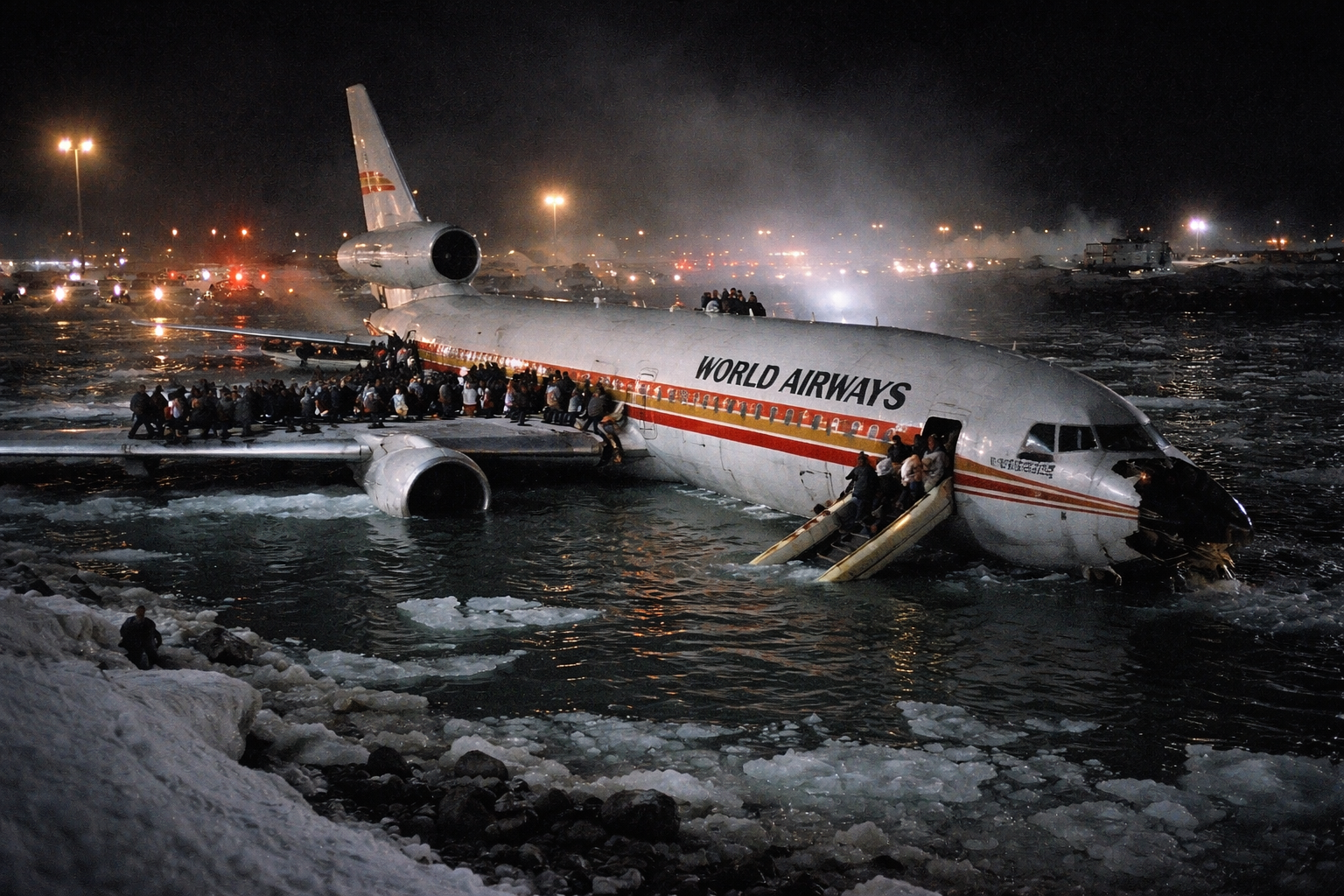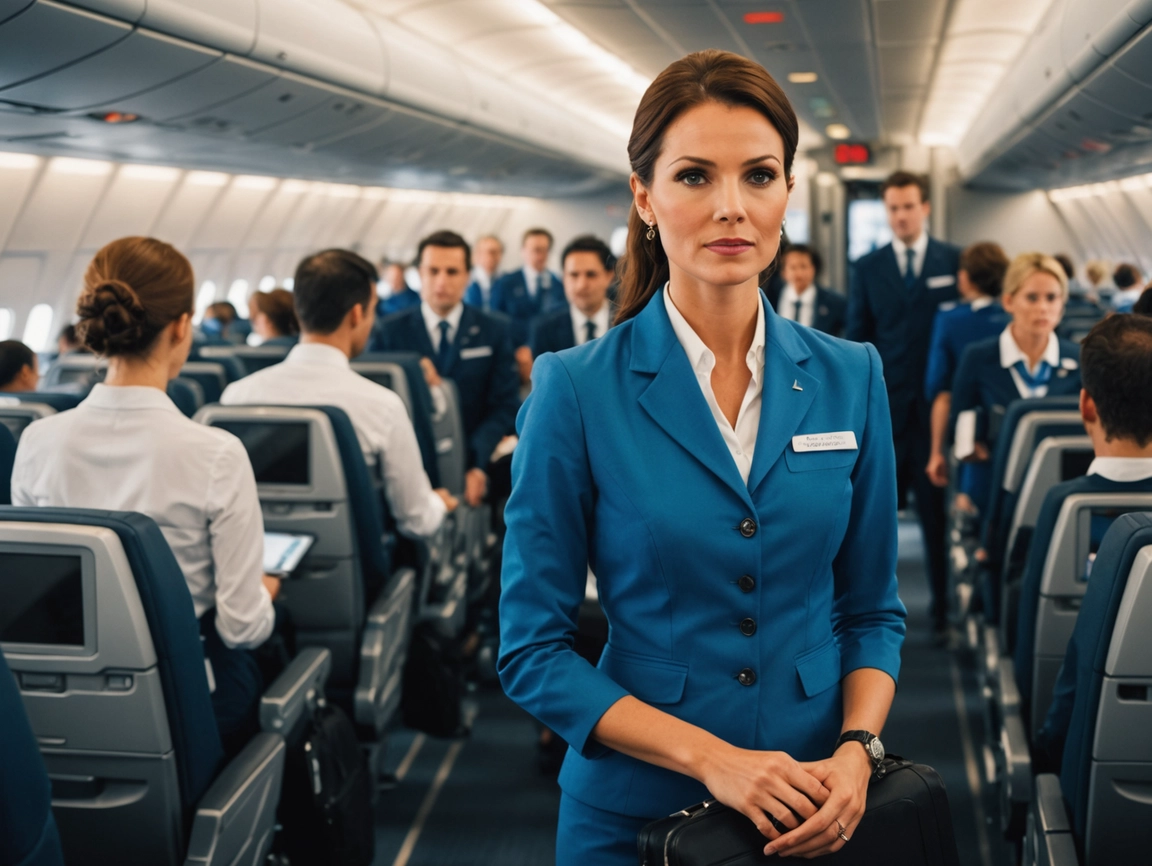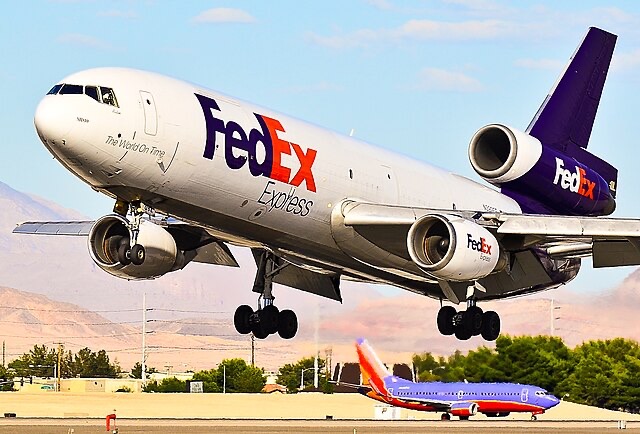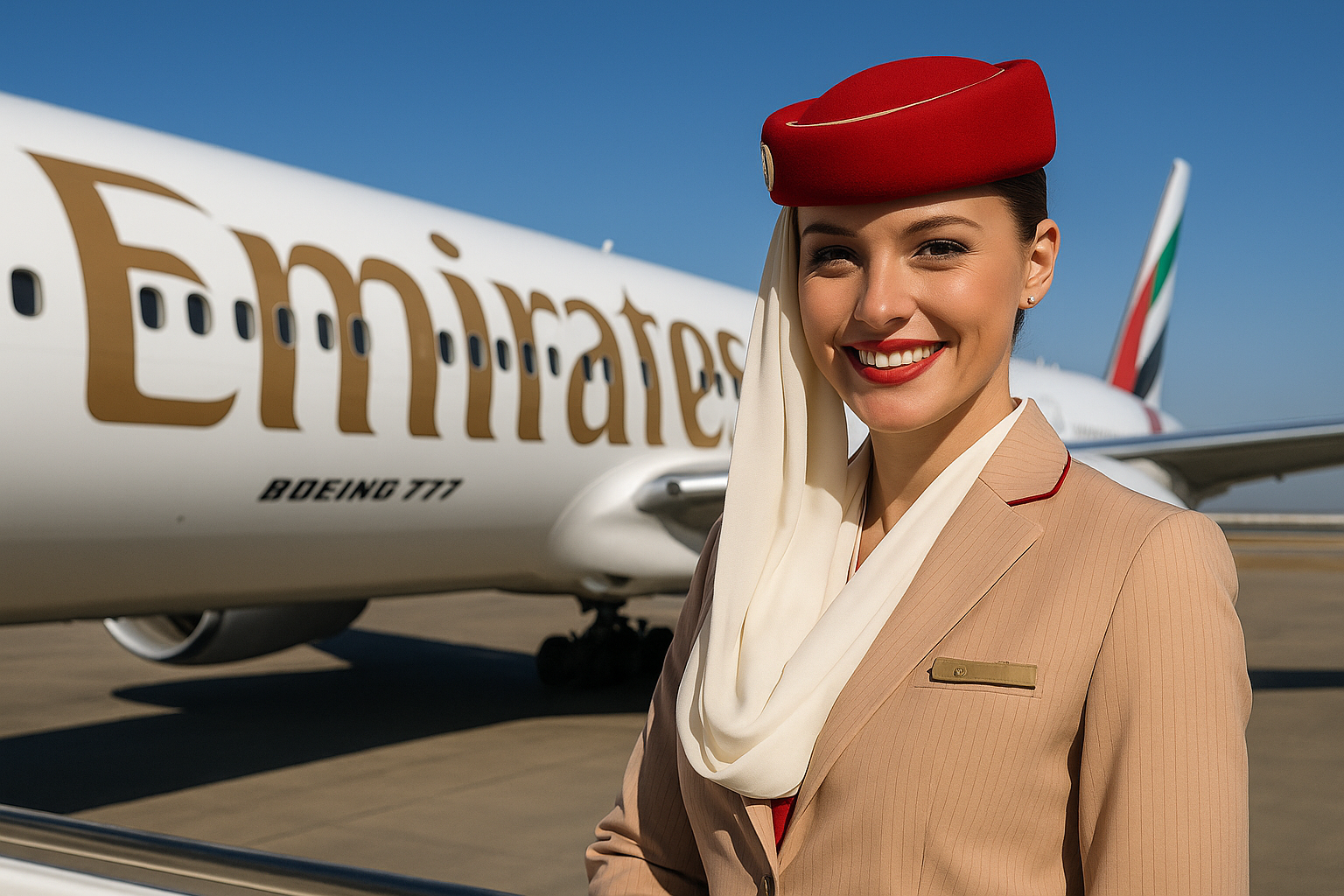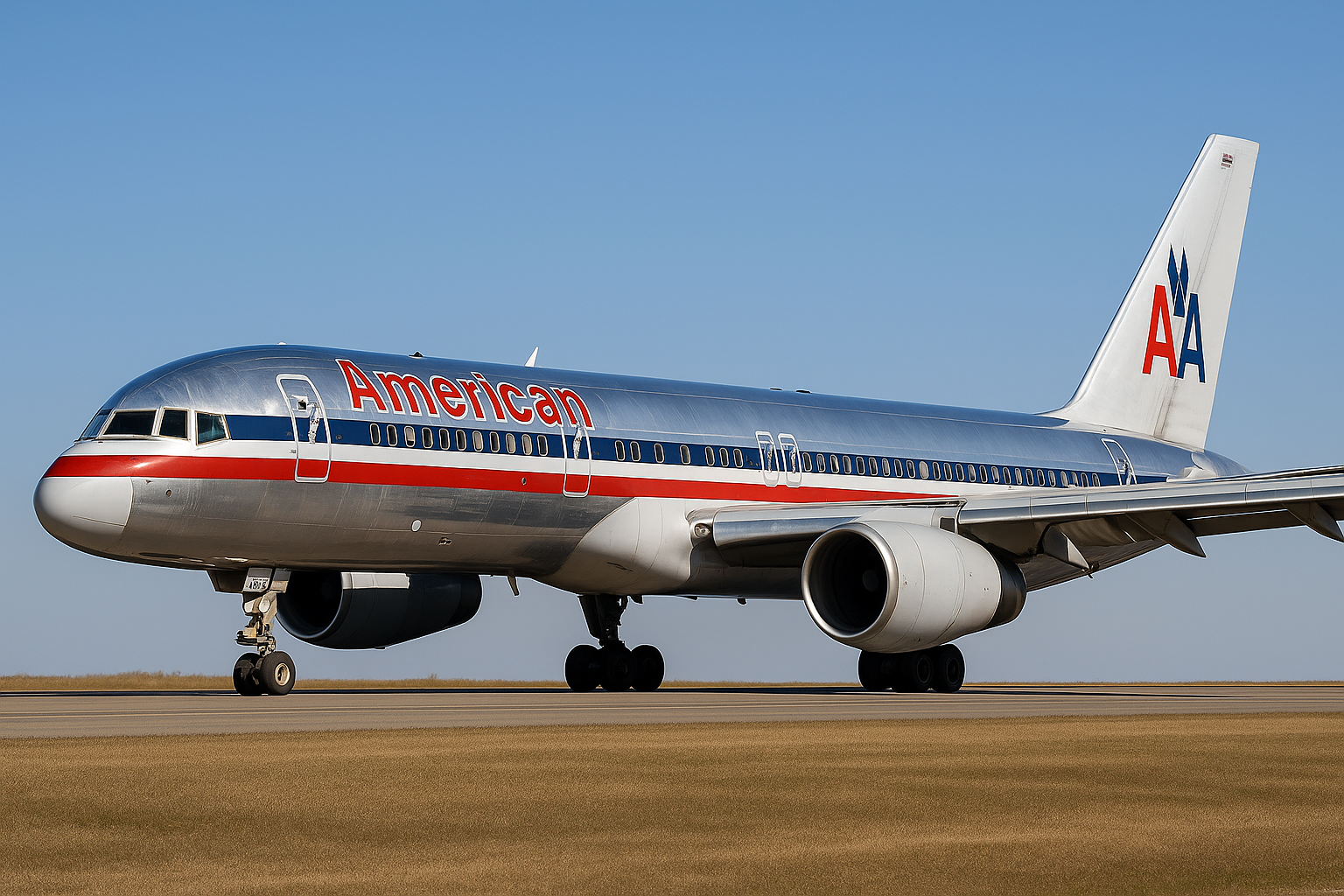In 2025, flying first class isn’t just about comfort—it’s about stepping into an entirely different world at 35,000 feet. Airlines and private jet companies are racing to deliver next-level experiences, and some of them come with jaw-dropping price tags. We’re not talking about lie-flat seats and extra legroom. We’re talking about private suites, full bedrooms, and in-flight butlers.
Let’s explore the most exclusive—and expensive—ways to fly right now.
Emirates First Class – The “Game Changer”
Emirates’ Boeing 777-300ER “Game Changer” suite is exactly that: a complete redefinition of commercial luxury. These enclosed suites come with virtual windows for middle seats, zero-gravity seats designed to reduce fatigue, and personal climate control. The lighting is adjustable, the doors shut fully, and the service is basically what you’d expect in a five-star hotel—if that hotel was flying from New York to Dubai.

Depending on the time of year, that trip could set you back more than $25,000 round-trip. But it comes with perks that extend far beyond the cabin. You’ll enjoy private lounges, on-demand dining, chauffeur service to and from the airport, and top-shelf amenities tailored for first-class travelers.

In 2025, Emirates doubled down on its luxury promise by upgrading its amenity kits and introducing skincare products developed with Voya. Even the in-flight entertainment has been expanded with exclusive channels only available to premium passengers.

Etihad Airways – The Residence
If you want to go beyond even the finest first class, Etihad’s “The Residence” is in a league of its own. Found only on the airline’s select Airbus A380 aircraft, The Residence includes a private living room, separate bedroom, and an en-suite shower. There’s even a personal butler onboard, trained at London’s Savoy Hotel.

One-way from Abu Dhabi to London? Around $30,000—minimum. Despite the uncertain future of the A380, Etihad has brought back The Residence in 2025, and demand is on the rise again. The airline also offers the First Apartment, which delivers its own brand of extravagance for those who don’t quite need a full flying flat.

Singapore Airlines – First Class Suites
Singapore Airlines’ First Class Suites are an exercise in understated elegance. Available on the A380, each suite features a sliding door for privacy, a full bed (not just a seat that reclines), and luxurious amenities designed in partnership with French brand Lalique.

A round-trip flight from New York to Singapore in one of these suites will typically cost you around $23,000. You’ll get custom dining, full bedding, and—if you’re traveling with a partner—an option to combine suites and share a double bed in the sky.

What’s new in 2025? A mobile app that lets you personalize your meals before your flight, improved lounge menus, and expanded wine pairings. It’s not flashy—but it’s flawless.
Private Jet Charters – When Price Truly Doesn’t Matter
If your idea of first class involves avoiding airports altogether, private jet travel is still the top of the pyramid. Companies like VistaJet, Jet Linx, and Nicholas Air specialize in tailoring flights to their clients’ exact needs. Want a last-minute trip to the Alps with a Michelin-star chef onboard? Done.
The cost? It varies. A transatlantic round-trip can easily range from $100,000 to over $250,000. Aircraft like the Gulfstream G700 or Bombardier Global 7500 are built for speed, comfort, and distance, with plush seating, lie-flat beds, and office space.
In 2025, there’s a growing emphasis on sustainability in this space. Many charters offer carbon offsetting, and some are starting to incorporate sustainable aviation fuel (SAF). Expect to see more partnerships with green brands, as well as personalized health and wellness features onboard, like built-in circadian lighting and in-air massage chairs.

Where First Class Is Headed
Luxury air travel is being reshaped by innovation as much as indulgence. Airbus is testing open-fan engines and folding wings, aimed at cutting emissions without compromising comfort. Meanwhile, airlines are experimenting with biometric boarding, personalized climate zones in suites, and AI-powered service.
Carriers like Lufthansa and Virgin Atlantic are piloting AR lounges and smarter check-in systems, while private aviation firms are rolling out real-time concierge apps and AI travel assistants. Sustainability is a growing focus, and luxury cabins are being designed with lightweight materials and eco-friendly textiles.
Expect the line between private jet and first-class cabin to blur further in the years ahead.
Why Demand Keeps Climbing
Even as the world faces economic uncertainty, demand for ultra-premium travel continues to climb. Why? Privacy, flexibility, and the ability to travel without compromise are more valuable than ever—especially to high-net-worth individuals, celebrities, and CEOs.
Flexible work schedules, remote offices, and global wealth migration trends are fueling this growth. According to McKinsey, the premium travel segment is projected to grow over 7% annually through 2030, with Asia-Pacific and the Middle East leading the surge.
Airlines are adapting quickly: adding more first-class inventory, expanding lounge access, and offering perks like spa services, meditation zones, and customized health menus.
What Should You Choose?
Each option comes with its own vibe. Emirates is all about innovation and privacy. Etihad offers the most space—and arguably the most bragging rights. Singapore Airlines is the refined, classic choice. Private jets? They’re in a category of their own.
Ultimately, it comes down to what matters most to you: space, service, schedule, or complete anonymity.
One thing’s for sure: in 2025, air travel at the top end isn’t about getting from A to B—it’s about making the journey itself unforgettable.
Sources:
- Simple Flying (2025)
- Kylie (2025), “Top 10 Private Jet Charter Companies”
- Business Insider (2025)
- Syme (2025), Airbus Development Reports
- McKinsey & Company, Global Aviation Outlook 2025


















